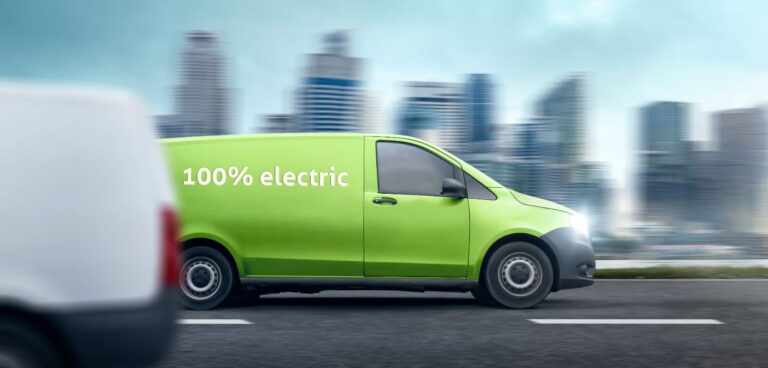UK new battery-electric light commercial vehicle (LCV) registrations grew by 142.3% in 2021, according to the latest figures released by the Society of Motor Manufacturers and Traders (SMMT).
While encouraging, this equates to just 12,759 zero-emission vans and a total market share of 3.6%, showing how far the battery-electric LCV market needs to grow to replicate the shift taking place in the passenger car market, where BEVs account for one in nine registrations as opposed to one in 28 in the van market.
The news comes as SMMT figures also show that new LCV registrations overall bounced back from the pandemic-hit 2020, growing by more than a fifth (21.4%) last year, with some 355,380 new LCVs registered in 2021, ending with the best December for the sector since 2015 with a 7.8% increase.
According to the SMMT, the robustness of the LCV market was due in part to strong underlying demand from key sectors – notably construction and home deliveries – with significant fleet investments resulting in 62,723 more units being registered in the last year than in 2020.
This performance is only marginally weaker than the strong 2019 market (-2.8%) and the five-year pre-Covid average (-3%). In 2022, the LCV market is predicted to grow further to 363,700 units, bringing registrations in line with 2019’s 365,778 units.
Mike Hawes, SMMT chief executive, said, “After a difficult 2020, the commercial vehicle sector has bounced back, with registrations recovering to just shy of pre-Covid levels.
“While demand has remained robust, there is still the potential for market volatility with the Omicron variant and component shortages threatening supply chains.
“Manufacturers are working hard to ensure deliveries, and, with a record number of battery-electric vans registered this past year, customers can be assured that more of these new technology vehicles will be available to keep society and businesses moving in an increasingly zero-emission manner.”
André Dias, CTO and founder of GoWithFlow, a sustainable mobility management solution for electric fleet operations, added: “Data released by the SMMT paints a compelling and encouraging picture of the EV adoption curve in the UK.
“Across private and commercial drivers, 2021 marked a dramatic rise in the registration of electric vehicles. This new appetite is not just promising, it is also essential. With UK targets to end sales of combustion engine vehicles by 2030, the shift to electric vehicles is a necessity.
“Most revealingly, 27% of the recorded electric vehicles registered were vans, showing a shift in the way businesses think about their transport. The advantages of transitioning to electric commercial vehicles are clear: as conscious consumerism becomes ever more important to the public, and as the 2030 deadline looms closer, fleet electrification is an essential transition.”





